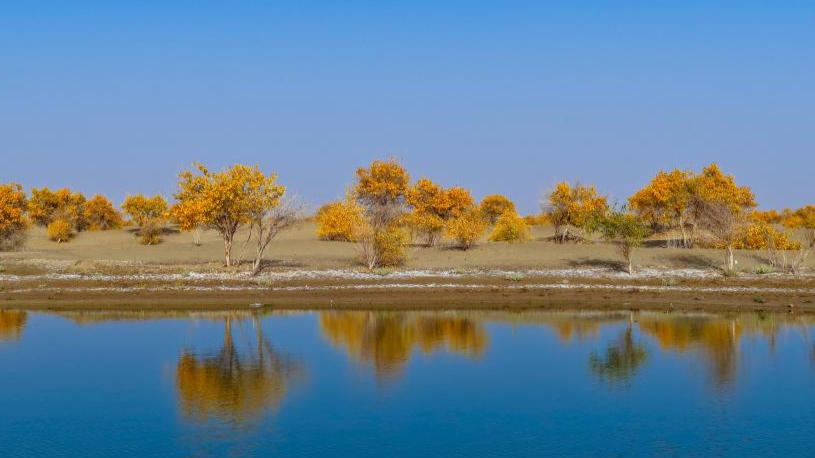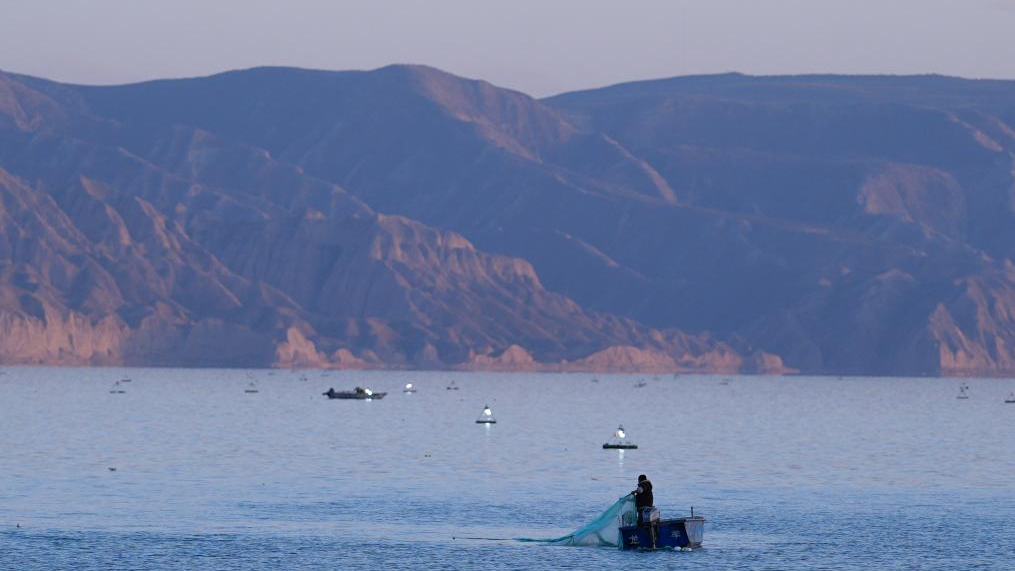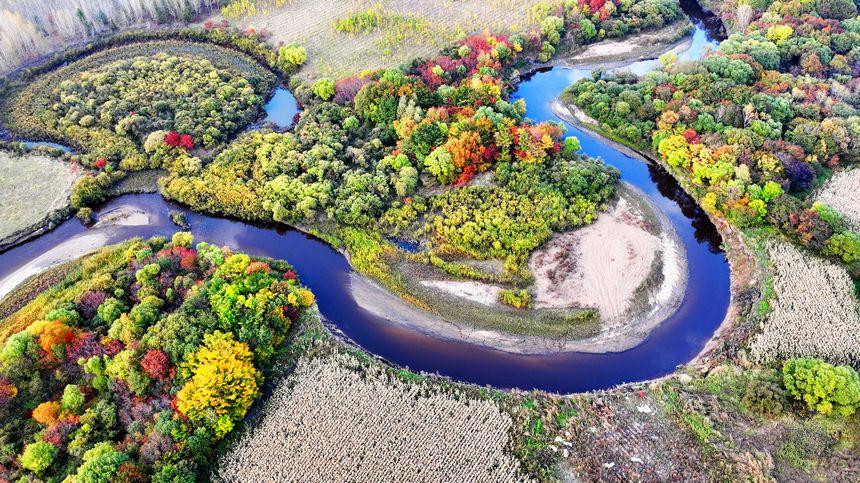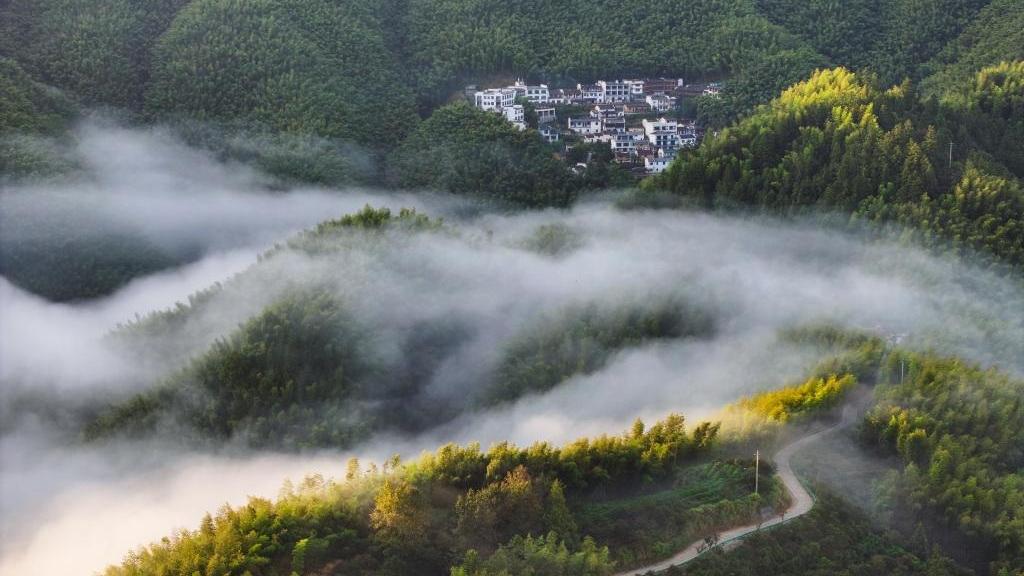‘I was struck by the natural warmth and vitality of the local people’
Editor's Note:
Despite some Western political forces continuing to run smear campaigns against Northwest China's Xinjiang Uygur Autonomous Region, they won't deter the people in the region from embracing peace and prosperity, nor will they halt Xinjiang society's steady development. Seeing is believing, and facts and truth will eventually debunk all lies. In the "Xinjiang Upclose" series, the Global Times (GT) will publish conversations with and articles from scholars and observers from around the world who have visited the region, sharing their firsthand experience of traveling to Xinjiang and observing the daily lives of its people. Through their insights and experiences, we aim to present an authentic perspective on Xinjiang.
In the tenth installment of the series, GT reporter Liu Xuandi interviewed Hasan ?apan (?apan), president of the Turkish Chinese Friendship Foundation. Based on his field trip in Xinjiang, apan shared his insights on the region's religious practices, the living standards of ethnic minority groups and its people-centered development.
GT: You visited Xinjiang in September for the first time. Could you share with us what you saw and experienced during the trip? Among all these experiences, which ones left the deepest impression on you?
apan:From the moment we landed in Xinjiang, I was struck by the natural warmth and vitality of the local people, as well as the impressive beauty of the airport itself. Our meeting with the vice chairman of the regional government of Xinjiang was marked by a cordial and sincere exchange, covering cultural, political and friendship-related topics in depth.
As part of our itinerary, we visited the Islamic Institute and observed classes conducted in Putonghua, Uygur and Arabic. It was striking to witness those students learning in a pressure-free environment with substantial resources.
We also toured a neighborhood management center, which left a deep impression on our delegation. Dilapidated houses had been replaced by new communities, with homes allocated free of charge based on residents' prior land shares.
GT: Xinjiang is a multi-ethnic and multi-religious region in Northwest China. Based on your field visit, do you think Xinjiang is restricting normal religious activities as reported by some Western media? As an observer from Turkey, how would you evaluate Xinjiang's current practices in religious policy and its efforts to protect religious and cultural heritage?
apan:During our visit, we toured mosques both with our guide and independently, speaking with imams and local residents. They told us - and we saw with our own eyes - that religious activities here face no restrictions. They mentioned that while mosques are typically busier on Fridays, the number of worshippers often exceeds indoor capacity during festive prayers, leading many to pray in the courtyards on prayer rugs.
We also observed that mosques belonging to minority groups, along with other cultural and religious heritage sites, are being carefully protected. For instance, we were deeply impressed by the well-preserved Yusuf Khass Hajib Mausoleum, which has maintained its original form for centuries.
Additionally, we noted that the Uygur language is written in a modified Arabic script, which we were told is the preference of the Uygur people. This script even appears on China's currency, reflecting the national recognition of minority languages. The presence of minority languages on such an important national symbol strongly conveyed the value and rights afforded to minority communities. We further visited numerous museums dedicated to preserving and showcasing traditional clothing, musical instruments and artworks - ensuring that minority cultures are not only celebrated but also passed down to future generations.
GT: You have repeatedly spoken out in international forums against false narratives in Western media about China. Do you believe the Western media's claims of China's human rights violations againstChinese Uygurs and other ethnic minorities are true? In your view, are the rights of people from different ethnic groups in Xinjiang being effectively protected?
apan:For many years, I have been closely following Western false narratives about Xinjiang. These claims originate from the US Congress, spread through European foundations, and are echoed by groups in Turkey and the so-called the government in exile. Based on my firsthand observations, I can confidently say these narratives do not reflect reality.
The US-based National Endowment for Democracy (NED) has publicly acknowledged funding certain Uygur organizations. When we investigate why such Western foundations are so interested in the region, the underlying motive becomes clear: Xinjiang borders eight countries and serves as a strategic gateway to the West, playing a vital role in fostering regional cooperation. Western provocations are spread through Turkey, exploiting cultural ties to fabricate and disseminate false and misleading reports. The aim is to hinder the development of China-Turkey relations and to prevent the formation of any political alignment against Western influence.
China is committed to the cultural and educational advancement of minority groups. Western actors deliberately distort these efforts - falsely labeling education initiatives as "camps" - to obscure China's legitimate policy goals of educational poverty alleviation and extremism combating. Their goal is to manipulate vulnerable communities for their own interests by fostering radicalism.
I urge the world to not believe hearsay and see for yourselves. The Chinese government acts with confidence, vision and humanity. It values people equally, regardless of ethnicity or faith. While other nations witness violence over resources or land, China pursues inclusive policies that dignify human life.
GT: The recently released white paper "The Communist Party of China (CPC) Guidelines for Governing Xinjiang in the New Era: Practice and Achievements" points out that "living a life of contentment is the ultimate human right, and a happy life for the people is the ultimate goal of development in Xinjiang." Based on what you observed during your trip regarding livelihood projects and public services, how would you assess the current living standards of people in Xinjiang? How do you understand the CPC's people-centered approach to governing Xinjiang?
apan:The CPC's policies, rooted in China's constitution, are implemented without discrimination. The nation has demonstrated its commitment to Xinjiang's development - benefiting all ethnic groups equally - through major projects including the establishment of solar and wind power stations and the Kashi Area of the China (Xinjiang) Pilot Free Trade Zone.
On a highway, we met an elderly woman selling figs. When we stopped to buy some, she offered WeChat Pay - no cash needed. It was striking to see how even small-scale trade in Xinjiang's rural areas is digitally enabled, allowing everyone to contribute to the economy. We witnessed agriculture thriving in the desert, supported by underground channels carrying water from the Tianshan Mountains to reduce evaporation. We saw and tasted some of the 550 varieties of grapes grown in desert basins. We visited small village cooperatives, supported by local governments, sending their products electronically across China. We saw young people working together with enthusiasm and contributing to local governance. In alleys, streets and fields, we met people selling the products they had harvested.
Importantly, the places we visited were chosen freely by us, without any direction or pressure from local authorities. To those who speak of repression in China, I say: Examine your own country first, then visit Xinjiang and see the reality for yourself.
Photos
Related Stories
- Scenery of populus euphratica forests in Hotan County, China's Xinjiang
- Harvest season of cotton starts in Xinjiang, NW China
- Global scholars hail Turfan studies as cultural bridge connecting civilizations
- Diplomats, business leaders in Hong Kong explore Xinjiang's beauty, eye collaboration
- Autumn scenery of populus euphratica forests, Tarim River attracts tourists to Xinjiang
- Xinjiang attracts rising investment in first 3 quarters
Copyright © 2025 People's Daily Online. All Rights Reserved.









